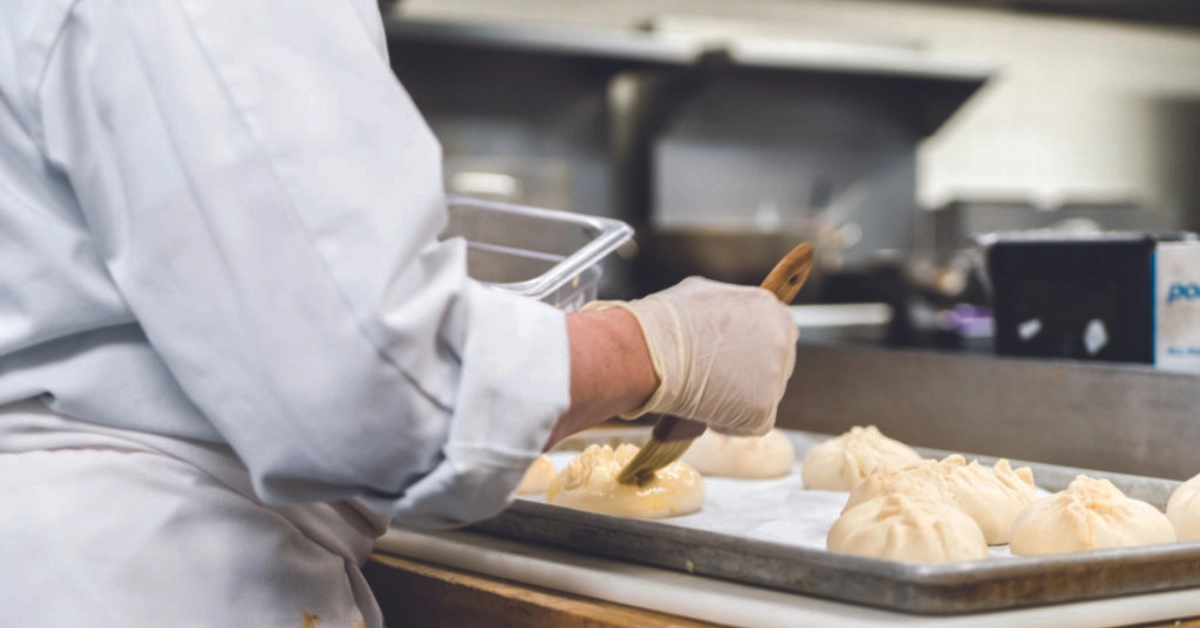A number of years ago, what was then Grant MacEwan College had few food options. Subway and Burger King were the premier choices, especially during the winter months when the weather sucks and staying at school until the wee hours sucks even more.
But as time moved on, so did the fast food chains. Eating at the campus Funky Pickle was great for the first seven or so slices, but after a while, students began to look for other options.
Kris Bruckmann of MacEwan University’s Campus Services knows this. With only 15 food options across MacEwan’s campuses, students can easily become bored of consuming the same items over and over again — especially at the satellite campuses. (You can only buy so many Funky Monkeys from Booster Juice before you question whether you should try something else.)
The three MacEwan campuses have four cafeterias: one at both the Alberta College Campus and the Centre for the Arts and Communications, and two at City Centre Campus (one in Building 6 and one in Building 9). As university officials move toward consolidating the school into one area of the city, they poured money into renovations for City Centre’s Building 6 cafeteria.
Bruckmann said many potential suitors of university retail space, including food chains themselves, liken campus franchise opportunities to mall food courts. He said, however, this comparison is far from accurate.
“Malls may get 10,000 people in the mall, but they’re different every day,” he said. “Here, we have the same ones. To keep (the students) interested and satisfied and intrigued in your product, you have to change it up.”
Mixing it up
Since he started with Campus Services, Bruckmann’s desire has been to change things up, but there were always two main obstacles standing in his way: real estate and capital. Balancing those two obstacles with student wants and needs was a tough task.
Over the past couple of years, the university was able to find some money for Campus Services. Though space was still an issue, Bruckmann was determined to use the money well. Campus Services surveyed students about what they wanted from their campus food court; some of the buzzwords were cheap, fresh, and locally-sourced. It’s hard to hit all three, Bruckmann says, but he feels satisfied with the changes implemented.
“Over the past five years, we’re confident with what we’ve done here,” he said.
What they have done over the past few years started with a pilot project in Building 9. As part of the project, Campus Services made the decision to slot in fresh, local food into the cafeteria by working with Filistix, a local Filipino-style restaurant, and S’wich, a local food truck.
Unfortunately, prices were a little high for students due to the ingredients and effort that went into making the food. Bruckmann considered this, but at the end of the day, he felt healthier and fresher options were worth the extra dollars.
“We can reduce the price, but the cost is the quality and the consistency,” he said, adding that’s how campuses get locked into contracts with national food chains. Campus Services have less control of the quality of food when dealing with national chains.
The two locally-owned businesses flourished on campus, receiving a lot of business from workers in the surrounding area as well. As of this year, however, both S’wich and Lan’s are no longer in MacEwan’s facilities. S’wich closed down, and Lan’s decided not to return due to staffing issues, according to Hospitality Services coordinator Susan Cooper.
But the two businesses showed Bruckmann that locally sourced food, despite being a bit more expensive, can work on a university campus. This allowed Campus Services to be more open to bringing similar food services to campus.
Tastes of all kinds
A number of familiar options remain at MacEwan, albeit with some modifications. During renovations in the summer of 2016, Towers received a rebranding and Subway moved over to the area where Fat Franks used to be. Similar to Lan’s and S’wich, Fat Franks is also no longer at MacEwan, as product sales were declining, according to Cooper.
With some businesses leaving campus, others are new — Careit, a locally-owned urban deli; OVEN, which sells pizza and pasta; and TASTE, which currently features Jack’s Burger Shack of St. Albert acclaim.
“We’re not just bringing in whoever is hot — we’re choosing who we bring in carefully,” he said, adding he chose these businesses mainly for their locally-sourced food practices.
The best part, Bruckmann said, is that all of the equipment in these places is on wheels, which means other businesses can take a turn for a semester, a month, or even a week. The specifics haven’t been hashed out yet, but Bruckmann hopes to generate enough interest in the restaurant community to give MacEwan students rotating options.
In keeping with MacEwan’s focus on sustainability, Bruckmann wanted Campus Services to take the idea of locally-sourced food one step further. As with the Building 9 pilot project, he had to find some money and some space.
Having aligned themselves closely with MacEwan’s Office of Sustainability, Campus Services began to invest money in producing its own food, using methods including aeroponics, aquaponics, and honeybees.
In a move that utilizes unused space around the school, organizers behind the Tower Gardens project grow produce in the middle of the spiral staircase. A nearly-complete aquaponics system in MacEwan’s child care centre also creates an environment where plants and small coy fish can live and interact.
Up above, on the roof, a resident beekeeper harvests honey from four rooftop flow hives.
Bruckmann said most of the food they produce is sold to Aramark, MacEwan’s food supplier. This means food grown on campus is fed to students, an initiative that has helped reduce the university’s ecological footprint. Money made on the products is reinvested into MacEwan’s sustainable practices.
According to both Cooper and Bruckmann, the health of the products grown is astounding. “The leaves (from some of the basil plants) are the size of lettuce leaves,” Cooper said.
Students are noticing, too. Cooper and Bruckmann say the feedback has been mostly positive.
“To see the look on their faces, there are a lot of little wins there,” Bruckmann said.
Things aren’t perfect quite yet, and both Bruckmann and Cooper are well aware of this fact. The aforementioned price has undoubtedly been tough for some students’ wallets to handle.
Bruckmann believes prices could come down as MacEwan continues to implement more sustainable measures, like growing its own food. But even if they don’t, Bruckmann said the price is small for fresh locally-sourced ingredients.
“It’s a balance. There’s going to be a little bit of a higher cost when it comes to the quality,” he said. “The fact that we’re stepping outside of what you would call the traditional food service on campus … it’s really exciting.”
Cover photo by Matthew Jacula.





0 Comments